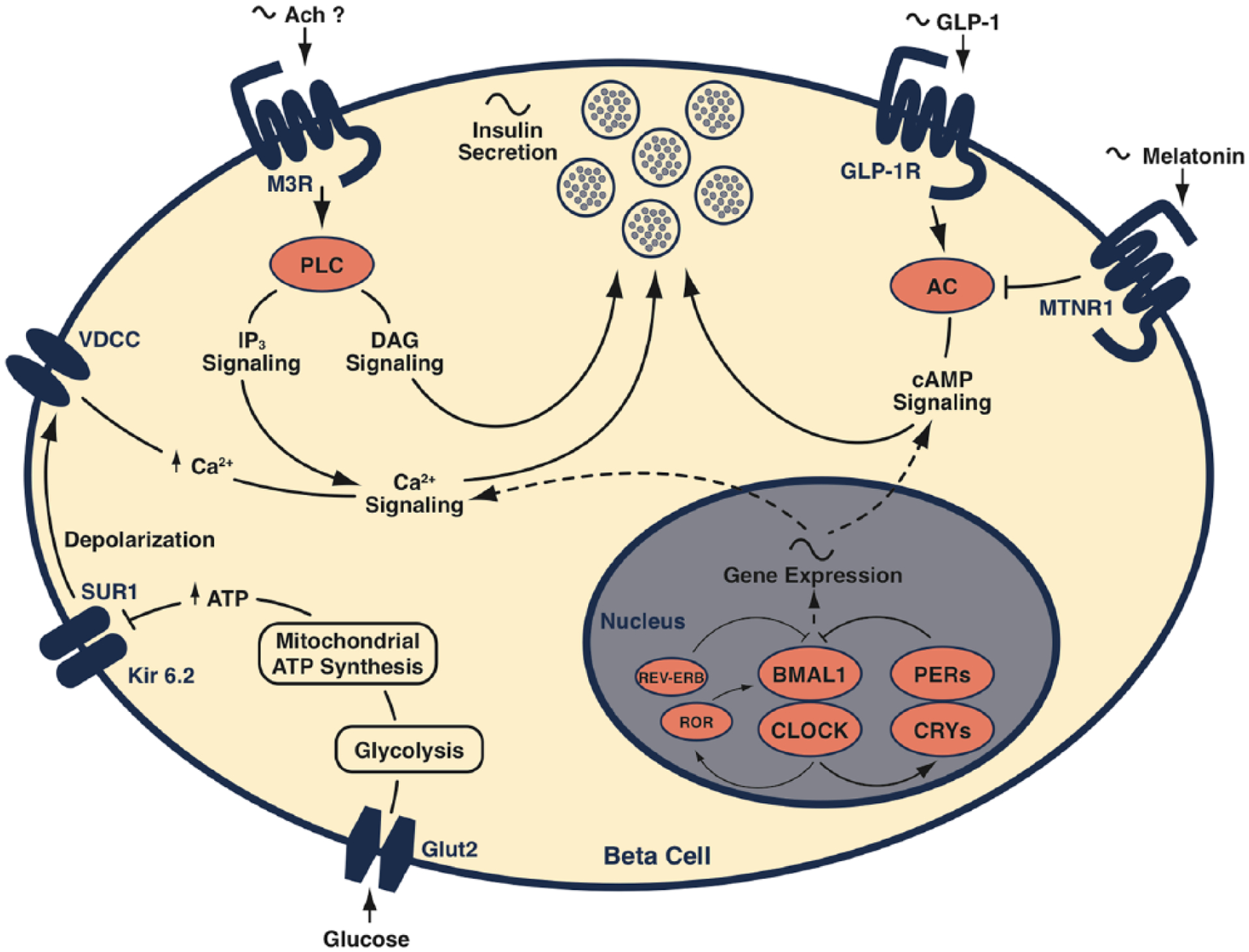Figure 2.

Molecular clock in the beta cell regulates insulin secretion together with circulating systemic factors. The circadian system regulates insulin secretion by driving rhythmic transcription of gene networks involved in glucose-, cAMP-, and Ca2+-stimulated exocytosis. Circulating levels of GLP-1 and melatonin modulate insulin secretion by augmenting or reducing intracellular cAMP levels, respectively. Acetylcholine-stimulated DAG synthesis bypasses clock-controlled signaling pathways to promote insulin secretion, possibly linking brain-derived cholinergic signals to the temporal control of beta cell function.
